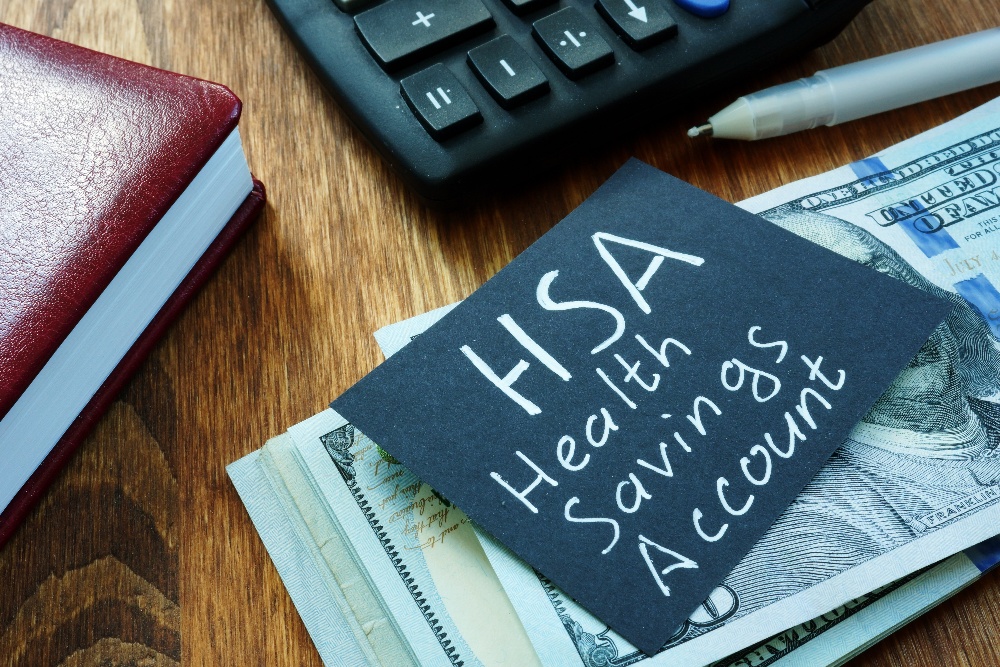
Many retirees can attest that healthcare costs during retirement are one of the most significant expenses within their family’s budget. Planning for these costs is critical to ensuring retirees have “enough” to live on during their retirement years. One of the best ways to plan and save for future healthcare-related expenses is to begin making contributions to a Health Savings Account (HSA), ideally during your early working years. Furthermore, if you have a long time horizon, you may want to consider investing the assets in your HSA in order to increase the probability of having more money in this bucket during your retirement years
It's important to note that not just anyone can contribute to a Health Savings Account. To be eligible, you must be covered by a high-deductible health insurance plan. In 2022, high deductible plans equate to a minimum deductible of $1,400 (single) vs. $2,800 (family).
If eligible, the maximum contribution to a Health Savings Account in 2022 is $3,650 (single) vs. $7,300 (family). In addition, anyone over age 55 is eligible to make an additional $1,000 catch-up contribution to their HSA. Lastly, if you and your spouse each have access to your own HSA and you are both over age 55, you can both make the additional $1,000 catch-up contribution. For a family in this situation, that means annual contributions of up to $9,300!
Benefits of a Health Savings Account
Health Savings Accounts may offer spectacular triple tax-free benefits as long as the account owner correctly manages the account contributions and distributions. Here are some of the key benefits associated with HSAs and reasons why you should consider taking advantage of these, if eligible:
1. Pre-Tax Contributions
When you contribute to a Health Savings Account, you’re doing so on a pre-tax basis, which means you avoid paying income tax on the contribution during the tax year in which it is made. This pre-tax contribution means potentially avoiding income tax on a max contribution of $7,300 in 2022 for a family plan vs. $3,650 for a single plan (possibly more under each scenario if eligible for the age 55 or older catch-up contribution).
2. Tax and Penalty-Free Withdrawals for Qualified Medical Expenses
You can take tax-free distributions from your HSA for qualified medical expenses regardless of age. Of particular importance is the fact the expenses do not have to occur in the year you take the distribution. For example, you could contribute to your HSA for five years, and during the fifth year, you may choose to reimburse yourself for a qualified expense that happened during year one. It’s essential to keep receipts for all your medical expenses to justify and account for the distribution.
3. Penalty-Free Withdrawals After Age 65
Once you turn 65 years old, you are eligible to take money out of your HSA without fear of penalty–regardless of why the distribution is being taken. You will still be subject to ordinary income tax on the distribution. Another way of thinking about the age 65 rule is that the HSA can effectively act as a “bonus 401k plan.”
Suppose you take a distribution from your Health Savings Account before age 65 for a non-covered medical expense. In that case, the distribution will be subject to ordinary income tax and a 10% early withdrawal penalty. Again, this is why it’s very important to keep all of your medical receipts over multiple years so you can justify the distribution as being qualified.
Taking Full Advantage of your HSA
Consider looking at your Health Savings Account to make sure you’ve been contributing and, if cash flow allows for it, that you are contributing the maximum allowable amount for the current tax year. If you have a sizable shortfall before hitting the max, and your cash flow is tight, there’s good news–you have until the tax filing deadline to fully fund your HSA (generally April 15th of the following calendar year).
Furthermore, contributions do not have to be made strictly out of payroll deductions. Instead, if you realize early in the new year that you didn’t max fund your HSA for the prior tax year, you can contribute (check, ACH, money transfer) directly to your HSA and claim it on your prior-year tax return.
The flexibility of HSA contributions and the multiple tax benefits mean you don’t want to overlook it, especially when it’s early in your career. To make sure that you’re organizing your finances appropriately, read our Getting Organized Guide. And if you think you might be missing opportunities in your own financial planning, feel free to reach out to me with any questions.




